#emerging authors poets and writers
Text
The Pondering Jemelee
Salutations! I am Jemelee, the author of this blog, a 21-year-old college student full of wonders and ponders that may conquer the world. Or may not. I created this blog during my midterms week, inside my dorm, in the busy city of Manila, for the purpose of…writing. Just writing. About all the things that go […]The Pondering Jemelee

View On WordPress
#AM WRITING#art-blog#author&039;s blogs#blog#blog articles#blog entries#blog writer#blog writers#blog writing#Blog-post#blogs#daily prompt#daily writing#daily writing prompt#emerging authors poets and writers#emerging bloggers#emerging writers#for writer#for writers#I am writing#the written word#to write#writing prompt
0 notes
Link
Welcome to 2023! It's a new year, and with it comes a new edition of Quiet Writers.
The aim of the Quiet Writers projects is to help new and less-known writers get their work into the world.
Submissions for our March release are now open until mid-February. The theme for this edition is "hope". As always, the theme is open to interpretation, use it in whatever way you see fit.
Feel free to shoot me any further questions.
Further information regarding this can be found on Wordpress (as linked) or Twitter (quietwriters)
#writer#writing#short story#poetry#short stories#submissions#new writer#emerging writers#indie writer#indie author#indie poet#self published#writing submissions
2 notes
·
View notes
Text
Remembering 9-11 21 Years Later
Poet and journalist Leslie McGraw will release the second edition of her debut poetry collection, “Emergencies of the Heart” on Friday, September 2, 2022.
Every generation of Americans has at least one moment where young adults are faced with the worst and best of humanity on a national scale. McGraw captures the feelings in those moments in Emergencies of the Heart.
"In Emergencies of the Heart, poet Leslie McGraw transforms her grief, anger, and confusion over the 9/11 attacks into some measure of comfort, clarity, and grace, through poems that insist on the indomitability of the human spirit. A generosity of heart pervades these poems that urge us to connect—whether it be to the beloved, to family, or to the larger human community. Because ultimately, as McGraw’s poems attest, the only true response to the emergencies of the heart is love. A heartfelt, courageous debut." –Angela Narciso Torres, RHINO Poetry senior editor and author of What Happens is Neither and Blood Orange.
This special 21st-anniversary memorial edition includes some updates and new poems, as well as a timely foreword dedicated to the 267 Black Americans who were killed during the attacks at the Twin Towers, the Pentagon, and Shanksville, Pennsylvania.
The collection is available for pre-order now at www.blackmusepublishing.com
3 notes
·
View notes
Text
This is why we still need Women’s History Month.
By Martha Gill
What was life like for women in medieval times? “Awful” is the vague if definite answer that tends to spring to mind – but this is an assumption, and authors have been tackling it with new vigour.
The Once and Future Sex: Going Medieval on Women’s Roles in Society by Eleanor Janega, and The Wife of Bath: A Biography by Marion Turner both contend that women were not only bawdier but busier than we thought: they were brewers, blacksmiths, court poets, teachers, merchants, and master craftsmen, and they owned land too. A woman’s dowry, Janega writes, was often accompanied with firm instructions that property stay with her, regardless of what her husband wanted.
This feels like a new discovery. It isn’t, of course. Chaucer depicted many such cheerfully domineering women. The vellum letter-books of the City of London, in which the doings of the capital from 1275 to 1509 were scribbled, detail female barbers, apothecaries, armourers, shipwrights and tailors as a matter of course. While it is true that aristocratic women were considered drastically inferior to their male equivalents – traded as property and kept as ornaments – women of the lower orders lived, relatively, in a sort of rough and ready empowerment.
It was the Renaissance that vastly rolled back the rights of women. As economic power shifted, the emerging middle classes began aping their betters. They confined their women to the home, putting them at the financial mercy of men. Female religious power also dwindled. In the 13th century seeing visions and hearing voices might get a woman sainted; a hundred years later she’d more likely be burned at the stake.
“When it comes to the history of gender relations, storytellers portray women as more oppressed than they actually were”
Why does this feel like new information? Much of what we think we know about medieval times was invented by the Victorians, who had an artistic obsession with the period, and through poetry and endless retellings of the myth of King Arthur managed somehow to permanently infuse their own sexual politics into it. (Victorian women were in many respects more socially repressed than their 12th-century forebears.)
But modern storytellers are also guilty of sexist revisionism. We endlessly retread the lives of oppressed noblewomen, and ignore their secretly empowered lower-order sisters. Where poorer women are mentioned, glancingly, they are pitied as prostitutes or rape victims. Even writers who seem desperate for a “feminist take” on the period tend to ignore the angle staring them right in the face. In her 2022 cinematic romp, Catherine called Birdy, for example, Lena Dunham puts Sylvia Pankhurst-esque speeches into the mouth of her 13th-century protagonist, while portraying her impending marriage – at 14 – as normal for the period. (In fact the average 13th-century woman got married somewhere between the ages of 22 and 25.)
But we cling tight to these ideas. It is often those who push back against them who get accused of “historical revisionism”. This applies particularly to the fantasy genre, which aside from the odd preternaturally “feisty” female character, tends to portray the period as, well, a misogynistic fantasy. The Game of Thrones author George RR Martin once defended the TV series’ burlesque maltreatment of women on the grounds of realism. “I wanted my books to be strongly grounded in history and to show what medieval society was like.” Oddly enough, this didn’t apply to female body hair (or the dragons).
This is interesting. Most of our historical biases tend to run in the other direction: we assume the past was like the present. But when it comes to the history of gender relations, the opposite is true: storytellers insist on portraying women as more oppressed than they actually were.
“The history of gender relations might be more accurately painted as a tug of war between the sexes”
The casual reader of history is left with the dim impression that between the Palaeolithic era and the 19th century women suffered a sort of dark age of oppression. This is assumed to have ended some time around the invention of the lightbulb, when the idea of “gender equality” sprang into our heads and right-thinking societies set about “discovering” female competencies: women – astonishingly – could do
things men could do!
In fact the history of gender relations might be more accurately painted as a tug of war between the sexes, with women sometimes gaining and sometimes losing power – and the stronger sex opportunistically seizing control whenever it had the means.
In Minoan Crete, for example, women had similar rights and freedoms to men, taking equal part in hunting, competitions, and celebrations.
But that era ushered in one of the most patriarchal societies the planet has ever known – classical Greece, where women had no political rights and were considered “minors”.
Or take hunter-gatherer societies, the source of endless cod-evolutionary theories about female inferiority. The discovery of female skeletons with hunting paraphernalia has disproved the idea that men only hunted and women only gathered – and more recently anthropologists have challenged the idea that men had higher status too: women, studies contend, had equal sway over group decisions.
This general bias has had two unfortunate consequences. One is to impress upon us the idea that inequality is “natural”. The other is to give us a certain complacency about our own age: that feminist progress is an inevitable consequence of passing time. “She was ahead of her time,” we say, when a woman seems unusually empowered. Not necessarily.
Two years ago, remember, sprang up one of the most vicious patriarchies in history – women were removed from their schools and places of work and battoned into homes and hijabs. And last year in the US many women lost one of their fundamental rights: abortion. (Turns out it was pro-lifers, not feminists, who were ahead of their time there.)
Both these events were greeted with shock from liberal quarters: how could women’s rights be going backwards? But that only shows we should brush up on our history. Another look at medieval women is as good a place to start as any.
Martha Gill is a political journalist and former lobby correspondent
#Women’s History#books for women#The Once and Future Sex: Going Medieval on Women’s Roles in Society#Eleanor Janega#The Wife of Bath: A Biography#Marion Turner
708 notes
·
View notes
Text
If you’re an emerging poet or writer and you’re itching to get a chapbook out, I would not recommend @bottlecap-press for the simple reason that they do not seem to pay their authors within a reasonable timeframe if at all. This has been my experience and I’m sure there are others out there. Since the release of my chapbook back in March, it has been total radio silence. I received one statement in those four months and none of the payments I’m due. While I am empathetic to the time and pressure involved in running a small business, the way in which the finances are handled is ridiculous and to a large extent, unprofessional. And this makes me suspicious that this press may be taking advantage of young poets who would like to see their work published. Anyway—take your chapbooks elsewhere.
98 notes
·
View notes
Text
THIS DAY IN GAY HISTORY
based on: The White Crane Institute's 'Gay Wisdom', Gay Birthdays, Gay For Today, Famous GLBT, glbt-Gay Encylopedia, Today in Gay History, Wikipedia, and more … March 19
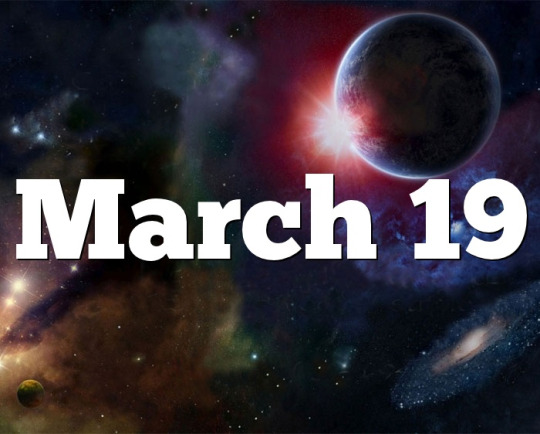

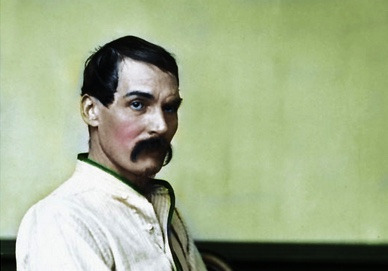
1821 – Richard Francis Burton, legendary British explorer, diplomat and author (d.1890); a swashbuckling English explorer, translator, writer, soldier, orientalist, ethnologist, linguist, poet, hypnotist, fencer and diplomat. If we left anything out it's hard to imagine what it might be . Burton was known for his far-flung and exotic travels and explorations within Asia and Africa as well as his extraordinary knowledge of languages and cultures. According to one count, he spoke 29 European, Asian, and African languages.
Burton's best-known achievements include traveling in disguise to Mecca, making an unexpurgated translation of The Book of One Thousand Nights and A Night (more commonly called The Arabian Nights in English because of Andrew Lang's abridgment) and the Kama Sutra and journeying with John Hanning Speke as the first white men guided by the redoubtable Sidi Mubarak Bombay to discover the Great Lakes of Africa in search of the source of the Nile.
Burton's writings are unusually open and frank about his interest in sex and sexuality. His travel writing is often full of details about the sexual lives of the inhabitants of areas he travelled through. Burton's interest in sexuality led him to make measurements of the lengths of the sexual organs of male inhabitants of various regions which he includes in his travel books. He also describes sexual techniques common in the regions he visited, often hinting that he had participated, hence breaking both sexual and racial taboos of his day. Burton, together with Forster Fitzgerald Arbuthnot, created the Kama Shastra Society to print and circulate books that would be illegal to publish in public. Many people at the time considered his Kama Shastra Society and the books it published scandalous.
Allegations of homosexuality followed Burton throughout most of his life, at a time when it was a criminal offense in the UK. Biographers disagree on whether or not Burton ever experienced Gay sex (he never directly acknowledges it in his writing). These allegations began in his army days when General Sir Charles James Napier requested that Burton go undercover to investigate a male brothel reputed to be frequented by British soldiers. It has been suggested that Burton's detailed report on the workings of the brothel may have led some to believe he had been a customer.
Burton was a heavy drinker at various times in his life and also admitted to taking both hemp and opium. Friends of the poet Algernon Swinburne blamed Burton for leading him astray, holding Burton responsible for Swinburne's alcoholism and interest in the works of the Marquis de Sade.

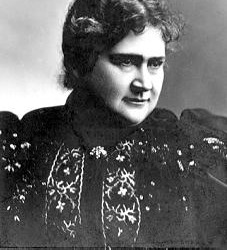
1850 – Octave Thanet, aka Alice French, American novelist, born (d.1934); One of the most popular novelists of the late 19th century, Octave Thanet is no longer read, and with good reason. Her stuff is irredeemably dreadful by any standard. (In one novel, for example, the heroine falls in love with a young woman and proceeds to tell her so, nonstop, for twenty-two pages, not counting heaves and maidenly emotion-laden sighs.) For 50 years, Thanet, a 200-pound, six-footer, lived together with petite Jane Crawford at their mansion "Thanford" (Thanet/Crawford).


1925 – The Virginia Supreme Court reverses the sodomy conviction of a man who had been found drunk in bed with his head on another man's stomach and with the other man's penis in his hand.


1930 – Charles Rowan Beye, born in Iowa, is a classical Greek scholar and author, noted for many texts on ancient Greece, including Odysseus: A Life. More recently he is known for his autobiography My Husband and My Wives: A Gay Man's Odyssey
Beye's budding homosexuality emerged when he was in junior high, enjoying a limited menu of sexual adventures with mostly straight boys. The local Episcopal priest informed Beye's mother that her son's name was scrawled, along with a sexual slur, on a men's room wall. Mother promptly dispatched her wayward son to a psychiatrist who — counter to almost every other psychiatrist in every work of gay literature ever written — turned out to be a compassionate man. The shrink simply counseled the 15-year-old Beye to be more discreet.

My Husband and My Wives: A Gay's Man's Odyssey is the memoir Beye looking back over eight tumultuous decades at the complications of discovering at puberty that he is attracted to other men.
By age 21, he had never slept with a woman. Nevertheless he married his first wife, Mary, living happily, until Mary suddenly dies of a freak heart condition a few years later. Beye remarried and fathered four children — all along maintaining his core identity as a gay man and enjoying an abundant sex life with both gay and straight men, described in great fleshy detail in the autobiography.
The ordeal of remaining true to what his libido tells him is right, in the midst of a disapproving and sometimes hostile society, is one side of his story. Another was the impulsive decision he made as a young adult to marry a woman who fascinated him. This led him into entirely unanticipated territory. He found himself suddenly a husband, a widower, a groom for a second time, and, finally, the father of four children and grandfather of six, though throughout it all, he never abandoned his erotic involvement with men.
Perhaps most extraordinary is the story's happy conclusion: Charles Rowan Beye's wedding in 2008 to the man who had been his companion for the previous twenty years.


1938 – Daniel Curzon, born Daniel Brown, is a novelist, playwright, educator, and writer of etiquette manuals for gay men.
He is the author of Something You Do in the Dark, first published in 1971 and which may be considered as one of the first gay protest novels. It is the story of a gay man's attempt to avenge his entrapment by a Detroit vice squad police officer by murdering him.
Curzon has written other novels, including The Misadventures of Tim McPick (original title: Queer Comedy), From Violent Men, Among the Carnivores, The World Can Break Your Heart, Curzon in Love, The Bubble Reputation, or Shakespeare Lives!, and What a Tangled Web. His non-fiction books include The Big Book of In-Your-Face Gay Etiquette and Dropping Names: The Delicious Memoirs of Daniel Curzon. This last was described by Ian Young in Torso as "ferociously honest and very funny" and by Philip Clark in Lambda Book Report as "a blunt, hilarious, page-turning ride that is...impossible to put down."
Curzon edited and published the early homophile magazine "Gay Literature: A New Journal" in 1975 and 1976. The magazine included poetry, fiction, literary reviews, essays, photography, and short plays. Curzon's own written work sometimes was included. Curzon contributed articles for other magazines such as "Gay Times" in 1976 and "Alternate" in 1978.
He is also a prolific writer of one-act plays. Seven volumes of his Collected Plays have been published as POD books through BookSurge. His plays have also been performed at such theaters as Theater Rhinoceros, New Conservatory Theater, New City Theater, Above Board Theater, as well as at the Fringe Festival in San Francisco and the Edinburgh Fringe Festival.
Curzon, who is openly gay, is currently a retired professor of English.


1963 – Gary Ferguson, a specialist of French Renaissance literature and culture, is the Douglas Huntly Gordon Distinguished Professor of French at the University of Virginia. From 1989, he taught at the University of Delaware, where he held the Elias Ahuja Professorship of French from 2012-2015. He graduated from St Chad's College, Durham University, receiving a BA with first-class honours in 1985 and a Ph.D. in 1989.
He is the author of Mirroring Belief: Marguerite de Navarre's Devotional Poetry, Queer (Re)Readings in the French Renaissance: Homosexuality, Gender, Culture, and Same-Sex Marriage in Renaissance Rome: Sexuality, Identity, and Community in Early Modern Europe, as well as of numerous articles dealing in particular with questions of gender and sexuality, women's writing, devotional literature and the cultural history of religion.

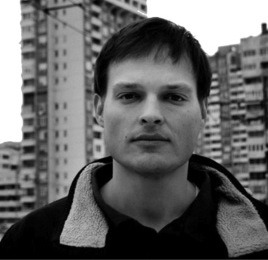
1978 – Garth Greenwell, author, grew up in Louisville, graduated from high school in Michigan, did his undergraduate work at SUNY Purchase, got his masters from Harvard, and somewhere along the way was classically trained as an opera singer, which he credits with giving him "a sense of the physicality of language."
In 2009 he moved to Bulgaria where he teaches at the America College of Sofia and where he found gay cruising spots that reminded him of Kentucky in the 90s. Those places and the local men "were nearly identical in their expectations and mores" including "a secrecy and shame about them."
His life there is the basis of his novella Mitko. Describing a nameless American in a nameless foreign city and his creepingly complex relationship with a hustler named Mitko, it was a finalist for Publishing Triangle's debut fiction prize and for a Lammy. A perennial favorite, the book garnered multiple mentions on the queer lit polls in 2011 and 2012.
In its article, "Of LGBT, Life and Literature," the Sofia Echo credits Greenwell's publications with bringing much needed attention to the LGBT experience in Bulgaria and to other English-speaking audiences through various broadcasts, interviews, blog posts, and reviews.

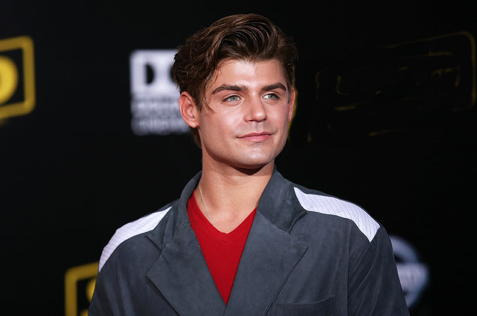
1991 – (Gary Michael) Garrett Clayton is an American actor and singer. He is known for portraying Tanner in the 2013 Disney Channel movie Teen Beach Movie and its 2015 sequel Teen Beach 2, and other film, television, and stage roles.
Clayton was born in Dearborn, Michigan. He began acting at Crestwood High School in Dearborn Heights, Michigan, performing in many of the drama club's productions. He later attended Oakland University, where he studied musical theater.
In 2010, he made appearances on Days of Our Lives and Shake It Up. In December 2012, he appeared in the Lifetime movie Holiday Spin, co-starring Ralph Macchio, as Blake, a rebellious teen forced to live with his father after his mother is killed in a car accident.
He was cast in 2013 in the role of Tanner in Disney's musical Teen Beach Movie, playing a cool but vacuous surfer who is "a mix between Frankie Avalon and Link from Hairspray". The film was directed by Jeffrey Hornaday and was filmed in Puerto Rico and was first broadcast in July 2013.He had a recurring role in the latter half of the first season of The Fosters. In 2016, he portrayed gay porn star Brent Corrigan in the film King Cobra, with James Franco and Christian Slater, and played the role of Link Larkin in the NBC television broadcast of Hairspray Live! He starred as Brady Mannion in the horror-thriller film Don't Hang Up, which was released in theaters in February 2017. Also in 2017, Clayton appeared on stage at the Pasadena Playhouse as Luke alongside Al Pacino and Judith Light in a six-week run of Dotson Rader's play God Looked Away, about the later life of Tennessee Williams.
In 2018, while speaking about why he chose to appear in the film Reach, Clayton revealed he has been in a long-term relationship with another man, Blake Knight. In January 2019, Clayton announced that he and Knight had become engaged a year prior.


1988 – Freddie Smith is an American television actor. He is best known for his character Sonny Kiriakis, the first openly gay contract role on the daytime soap opera Days of Our Lives. He also briefly portrayed Marco Salazar in the new franchise of 90210 aired on The CW.
Freddie Smith was born in Ashtabula, Ohio. He grew up as an only child but is very close with two of his cousins. Smith "lived and breathed basketball" until his senior year in high school when a friend suggested he take a theater art class. After high school, Smith moved to Los Angeles, beginning his acting career in 2008 appearing a cameo role in the paranormal series Medium playing a senior boy.
On January 9, 2011 it was reported that he had joined the cast of The CW series 90210, in a recurring role as Marco, a gay soccer player who would become involved with Teddy Montgomery (Trevor Donovan). He appeared in 5 episodes of the third season including the season finale. On July 17, 2011 The CW announced that Marco would not return in season 4 as Teddy's boyfriend, having broken up with him over the summer.
Besides 90210, he took up the role of Jackson "Sonny" Kiriakis in Days of Our Lives, the first openly gay contracted character in the hit daytime soap opera (Ryan Scott had previously played the non-contract, openly gay role of Harold Wentworth between 2000 and 2003). Smith's character would become romantically involved with Will Horton, played by Chandler Massey, garnering immense popularity with fans and becoming the show's first same-sex supercouple (commonly referred to by the portmanteau "WilSon").


2010 – Billy Merasty receives Manitoda's Order of the Buffalo Hunt. Merasty (born 1960), is an Aboriginal Canadian actor and writer of Cree descent.Merasty was born in Brochet, Manitoba, Canada. He is the ninth of fourteen siblings born to Viola and Pierre Merasty, and a grandson of Joe Highway, a famous caribou hunter and champion dogsled racer; and related to playwright Tomson Highway and dancer/choreographer/actor/director René Highway.
He moved to Toronto at the age of 18 in search of René Highway, who was then working for the Toronto Dance Theatre. At the age of 23, he launched his acting career after graduating from the Native Theatre School for aspiring First Nations artists. He then worked for the Native Earth Performing Arts for a long period.
Merasty has worked extensively on the stage and films as an actor and has written one play, Fireweed, produced in 1992. His second play, Godly's Divinia, is in development.
In 2010, Merasty received the Order of Manitoba (Order of the Buffalo Hunt) in recognition for his many years as an Aboriginal role model from Manitoba. At the time he was the lead actor in Where the Blood Mixes, winner of the 2009 Governor General's Award for drama. The play tackles Canada's painful history of residential schools and "the '60s scoop", referring to the adoption of First Nation and Métis children in Canada between the years of 1960 and the mid-1980's, through the experiences of one family and their community.
His stage credits include appearances in Tomson Highway's The Sage, The Dancer and the Fool, Dry Lips Oughta Move to Kapuskasing and The Rez Sisters, Daniel David Moses' The Indian Medicine Show, Lanford Wilson's Rain Dance, Marie Clements' Copper Thunderbird, Kevin Loring's Where the Blood Mixes, Steven Cole Hughes' Ghost Dance and David S. Craig's The Neverending Story.
In 2012, he performed the role of Gloucester in an all-aboriginal production of William Shakespeare's King Lear at the National Arts Centre in Ottawa, alongside a cast that also included August Schellenberg as Lear, Tantoo Cardinal as Regan, Jani Lauzon in a dual role as Cordelia and the Fool, and Craig Lauzon as Kent.
Reflecting on his life, Merasty said, "I've always been open. Although a lot of people have told me not to be so gay if I want to be an actor, that it will limit me. I know that it has, but I'm not limiting myself, it's other people who limit me"



22 notes
·
View notes
Text
spinning silk | writer's commentary
Hello! It has been a long journey but my Link Click fic, spinning silk, has come to a finish. It has been a joy to write and to share with you, and I really hope that you enjoyed the journey. I am so excited for you to read it now in its completion!
I thought it would be fun/interesting to include a writer's commentary about the story, as I've included elements that I'm excited about and would love to talk about the thoughts behind them, the history, foreshadowing, et cetera.
I will try to shy away from explaining too much in case we wanna preserve some level of the Author is Dead skskks . Happy to answer questions on a separate post or DMs though if there is interest! If you are interested in this commentary, please join me! If not, no worries and merrily we roll along.
Spoilers ahead!
The Epigraph
It's easy to miss the epigraph in this story, which is at the beginning of chapter 1 and is very brief. I don't know if anyone here is Chinese-literate, or if you popped it into a Translation app. If you have, you would have realised that the epigraph actually spoils the ending of the story!
A reminder of the epigraph:
君埋泉下泥销骨
我寄人间雪满头。
-Bai Juyi
For his friend, Yuan Zhen
Bai Juyi and Yuan Zhen were famous Chinese poets from the Tang Dynasty, and good friends. Bai Juyi would have written this after Yuan Zhen died. The poem's translation is thus:
Your bones are buried under the spring mud;
I remain in the mortal world with my hair white as snow.
In the context of this poem, white as snow can indicate someone growing old as they sit at the grave of their friend, therefore their hair turning all white. It can, depending on the translation, indicate someone who sat through the winter until snow layered upon their head , by the time spring comes. Or, in the context of Link Click, Lu Guang's white white hair. Which interpretation should it be? 🙂
Also fun fact I accidentally miscredited the poem for the longest time to Li Bai, another famous Tang Dynasty poet. Oops!
Silk
Ah, this story is built on silk. I think it is fairly famous, the 'red thread of fate' from East Asian/Chinese culture, the concept that you are somehow tied to your soulmate by a long, connecting red thread. I wanted to use the concept of thread as fate, but expand it beyond just about soulmates and relationships. That was the motivation behind depending on silk imagery for Liu Xiao's plan, to play on a well-established concept in Chinese mythology and add my own twist to it. Especially since Liu Xiao was the one in S2 to make the comparison, of people having a thousand parallel fates/threads.
As I was musing on an idea for this fic, that was when I happened to visit an exhibit that included the life cycle of a silk worm. My mother then told me how when she was little, she used to raise silk worms as pets. That got me to muse on the process of making silk--how you have to boil the cocoon and then unravel it slowly until it is a single, long thread. You have to be so careful with it because if it breaks it's kind of pointless, and how magnificent it is that such a cocoon could be so uninterrupted, singular, continuous.
Which brings me to the climax with Lu Guang, when he is trapped in a literal and figurative cocoon of silk. So as Liu Xiao had said (or at least, I think he said it...I forget lol)--when you make silk by boiling the cocoons, you kill the silkworm inside. Silkworms leave the cocoons by chewing a hole through it, which essentially renders the silk unusable because it's all chewed and broken, but now the silkworm is a moth and flies free. The thread of silk, the cocoon, must be ripped and ruined, only then can a silkworm emerge with wings, transformed. Only then can it live.
(Fun fact: one of the first things I knew I wanted from this story was the scene of Cheng Xiaoshi using his threads of fate to sew up all the ripped seams of time. That was, in many ways, the impetus of this story's idea--the image of him so selflessly giving up his own future and life to the act of something as gentle as mending)
Wen Xi
I loved writing chapter 2, honestly. Not only because I get to write about a dive, which is the charm and heart of Link Click, and not only because I get to write about my culture and province (Cantonese represent!) but also because in my eyes, the Wen Xi dive functions similarly to how I interpret the earthquake arc functions for canon.
There was a moment where I almost had a scene where CXS actually interacted with Wen Xi in person. He would have run into her at one point, and of course he can't act like he knows her because she doesn't realize he was the one who did the job for him, but he would have had a moment with her. She was sitting on the curb, struggling with some of the mangosteens she bought. He remembers how she doesn't like getting her hands sticky and wet and how Song Liming used to open them for her when they were kids, so he would have asked her if she needed help and gave her that little bit of kindness. This was ultimately scarpered so that he and Qiao Ling could have that more plot-driven moment of worrying over Lu Guang.
Other Deleted Scenes/changed scenes
Not so much a scene as it is a theme that I wish I could have expounded on more but ultimately couldn't figure it out. Which is to say, I wish I could have played around with Liu Xiao more. Liu Xiao, Lu Guang, and Li Tianchen are the trio who are manipulating fate and the future. They are also three characters who are, in their own way and for their own reasons, trying to use the control of time to answer for a painful trauma that they cannot bear to face full-on. For Liu Xiao, that flashback scene of Liu Min would have played a bigger role in the story. I wish I could have completed this, but at the same time, in my head in order for him to confront it is to own up to it, and find healing from it. He did not want to do that in the playground of my imagination. So I left him be.
Actually, Liu Xiao was supposed to be a little more villainous in this story! He would have been a bit more purposeful about Cheng Xiaoshi, knowing that CXS' abilities are causing the 'knot' in the silk and then intending for CXS to die alone/far from Lu Guang so that Lu Guang would not repeat the cycle. Ultimately I preferred Liu Xiao to be a bit more morally gray. He struck me as someone who didn't have a personal grudge against CXS at the end of the day. All he wants is his own peace of mind.
There was also going to be a moment, although I ended up scrapping it early on, where the photograph of Cheng Xiaoshi and his mother would have played a bit more of a role in the story. There would have been a moment where, upon discovering what Lu Guang was doing with the silks and realizing how much damage it was causing not only to him but to the world, Cheng Xiaoshi would have felt like he was the cause of all of Lu Guang's misery and now also the misery of the concept of time and space, since Lu Guang was essentially destroying the world because of him. In a moment of being in a pretty terrible head space, Cheng Xiaoshi would have half considered diving back into that photo as his mom and straight up Terminator his childhood self to save everyone the trouble. Qiao Ling would have strongly talked him out of it. Ultimately I felt that was, well, a bit dark, and not really fitting to the rest of the story.
Speaking of the photograph's purpose, the opening scene used to be a wee bit different, where Cheng Xiaoshi would actually give Qiao Ling the photo of his mother and ask her to hide it from him. He would never explain why, but Qiao Ling would have a guess as to what the reason was. I changed it because I wanted the story to have a bookend. It begins with Qiao Ling holding Cheng Xiaoshi as he slept to keep him warm. As does it ends.
Culture(???)
I'll be honest, I'm borne of expats, so I'm not the one to break down the traditions and culture of the characters. At the same time, I definitely was raised in Chinese culture and spent formative periods of my life in China, so there are a lot of things I take for granted and not think to explain when in fact it is not actually a universal experience.
But anyway! This is a section to explain my caveat. I am Cantonese. Link Click very likely takes place in a northern city. China's food culture is EXTREMELY diverse, so the food that I have eaten in China, because I spend all my time in a specific province, is probably food that Cheng Xiaoshi, Lu Guang, and Qiao Ling seldomly eat! But I couldn't help myself, so I wrote about my favorite foods. Because I write fic for ME.
That also goes for the daily living aspect as well. For all I know, Cantonese doctor visits, city walking, food delivery, groceries, etc. are the same as Northerners. For all I know, it could be wildly different! I have no idea. I do reckon though that our trio live in a quieter, smaller city than what I'm used to. I mean, look at their neighborhood.
Not regarding shanghuo, though. Shanghuo is everywhere in China.
Anyway, a quick rundown of things:
black sesame porridge: A very Cantonese sweet porridge. Technically considered dessert, but also lauded to be full of nutrition. Technically considered 'soup' but I write fic for me.
Also, black sesame soymilk. Soymilk is great.
Sun Wukong- LG compares himself, or wished to compare himself, to Sun Wukong escorting Tang Sanzang to the west. This is in reference to our beloved Monkey King in The Journey to the West! He is an iconic literary figure dating back to idk I think the 1400s or something and his story is quite long and mythical but long story short his mission was to escort a monk westward, towards South Asia, to collect some important scripts. He had to protect Tan Sanzang from all sorts of demons and devils along the way.
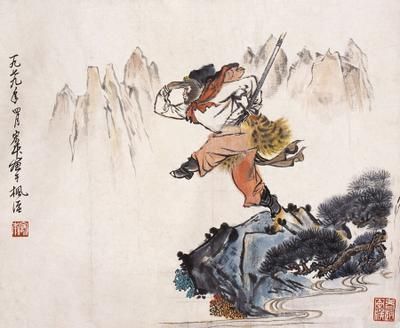
Pixiu- Lu Guang makes a passing comment in his point of view about putting a Pixiu at his doorstep and hoping it pays off Cheng Xiaoshi's debt. Pixiu is a little guy (arguably dragon, probably not) that likes to gobble up gold. If you put a little Pixiu statue in your area, the idea is that he will bring wealth to you. He's got a whole story about him where he ate up all the gold of the heavenly palace and the Jade Empress was so mad she sewed up his butthole so he would have eternal constipation, or something like that. Don't correct me if that's wrong because that's how the story was told to me and I delight in it LOL. I love him. He's my favorite idiot.
Clay pot rice -Also a very Cantonese dish. Frankly, the rest of China is missing out if it is only contained in the Canton province. Rice that is cooked with meats in a clay pot which makes the rice v ery aromatic and deliciously crispy around the sides. Qiao Ling was NOT going to take that out for takeout, that girl was 100% just gonna treat herself in a restaurant and CXS was gonna have to deal with scraps and leftovers.
Zhinü- I'm realizing that Lu Guang makes a lot of references in his internal monologue LOL. This is in reference to the Weaver Girl and Cowherd folktale, one of China's Four Great Folktales (which include Lady Meng Jiang, Legend of White Snake which is my personal favorite, and the Butterfly Lovers). It's a very classic Chinese story about a celestial weaver girl, Zhinü, who is the daughter of I think the Jade Emperor who is like the heavenly king of gods, and her lover the mortal cowherd. Long story short, her father was unhappy that she fell in love with a mortal and so separated her from her husband and children with the Milky Way. One day a year, the birds take pity on the lovers and form a bridge across the galaxy so that they can reunite. Between her and Lu Guang's weaving--or rather, spinning silk--I couldn't pass up the opportunity to make a reference.
yangmei wine - Liu Xiao is drinking some Yangmei wine. Yangmei is a type of fruit in China and I am pretty sure I actually made him drink a different wine than what I'm imagining. What I intended for him to drink is a wine that is made of a particular fruit that isn't strictly speaking edible, or at least not eaten for enjoyment. It's usually always only used for making wine, and you let the little plums (so t ospeak) soak in the alcohol until it is a bright red. Very sweet. Very strong.
Sanmao- At one point Lu Guang compares Cheng Xiaoshi to Sanmao because Cheng Xiaoshi had a small sliver of hope for his parents snatched right from underneath his nose. Sanmao is an iconic Chinese character from a long-running comic that began in the 1930s. He is a poor orphan boy during the era before and during WWII, who is just trying to survive extreme poverty. He is often mistreated by passerbys and is very lonely, often looking longingly at other kids who have food to eat and have parents. Every time someone treats him with kindness and he has just a little bit of hope that he can have a family or some good fortune, some awful circumstance happens, usually tied to tense socioeconomic injustice or war.
One of the less traumatic panels of the comic lol:
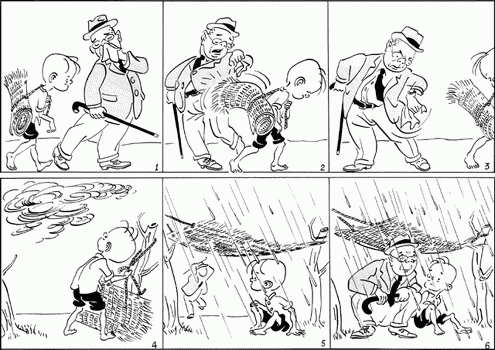
Jiuzhaigou- Cheng Xiaoshi mentions wishing that he could go there one day, and then at the end Qiao Ling and Lu Guang say that they will go together. Jiuzhaigou is in the Sichuan province, it is a nature realm that is very beautiful. There are natural deposits that make the lakes ultramarine blue and crystal clear. It's so beautiful! A photographer's dream.

Tangyuan- sweet and sticky rice dumplings that can be filled with sweet filling such as peanuts, black sesame paste, sweet egg, or more! They are often eaten during holidays, both during Winter Solstice and the 15th day after Lunar New Year. Indeed they are symbolizing family togetherness, although less because of stickiness and more because of a pun in their name. But maybe stickiness has something to do with it? Winter Solstice foods in different regions of China are also somewhat sticky, even if they don't typically eat tangyuan. I just know what I'm told lol.
Doraemon-A popular Japanese manga/anime from the 50s or 60s that is immensely beloved by the Chinese to this day. He is a robotic cat from the future with a fourth dimensional pocket full of futuristic gadgets that he uses to help Nobita, a fourth grader in the 50s, with his every day problems. He's wonderful. Also, he has a time machine which is tucked in Nobita's homework desk. Fitting....

Yixiu- Another popular Japanese anime, I believe from the 80s, that was also quite popular in China. It's about Ikkyu-san, a little monk/prince whose profound wisdom solved all sorts of grown-up's shenanigans.
Jiejie- A reader had asked the significance of Cheng Xiaoshi calling Qiao Ling this in the penultimate so I figured I'd bring it up here as well. 'Jie' is an indicator of older sister, or a bit of a respectful but also affectionate term for a young woman. Just like how Lu Guang calls Qiao Ling 'Qiao Ling jie' in the show. When he does it, it's friendly but also not actually meaning that he sees her as a sister sister because it's attached to her whole name. Cheng Xiaoshi in this story, not necessarily canon, refers to her as Ling jie every now and then. To me, this is him hearkening to childhood terms, as that is what his parents would refer to her as when he was growing up.
Take this with a grain of salt because I am a diaspora and not originally from the culture. Qiao Ling referring to Cheng Xiaoshi as 'didi' (little brother) in the show, and in the end Cheng Xiaoshi calling Qiao Ling 'jiejie' (big sister) in this fic are not rare, so to speak, or inappropriate, but you don't typically refer to someone who isn't related to you as your 'didi' or 'jiejie' unless they are blood related to you. You can call your sibling this, or your cousins this, but uuuuusually not someone who is like a sibling to you--singularly, yes, like Ling jie, but not typically Jiejie. Them calling each other this means that they truly see each other as their sibling. Also, those terms are a little bit childlike, so to speak. There are more 'grown-up' ways to refer to your little brother or big sister. In Cheng Xiaoshi's case, someone his age will probably refer to a sister as 'a jie' or 'jia jie'--at least, in Cantonese this is the case. 'Jiejie' is a little kid's way of calling their sibling. Like, up until I was about 7 years old I would have referred to my sister this way. To call someone 'jiejie' now, particularly to their face, I feel is a very vulnerable address. It's like if you as an adult who usually calls their mother 'Mom', in a time of deep distress or sadness and in need of comfort, revert to calling her 'mama' or 'mommy'. Like, you're both probably in tears to get to this point. At least, that is my experience with addresses, and therefore Cheng Xiaoshi's lol. Any fellow sinos out there can correct me but that was my intention for that part of the story. Cheng Xiaoshi is vulnerable, and he is seeking comfort from his big sister.
Mama's nursery rhyme- The story of the little rabbits and their Mama Rabbit is a very well known children's story in China. The story wasrecounted as close to memory as I can, so the only other thing I can say about it is that this is how the song goes.
Well, that's all I can think of right now! If there are any questions or you're curious about something, feel free to send me a message! Otherwise, I hope I didn't resuscitate the author too much.
46 notes
·
View notes
Text

Other Worlds: An Anthology of Diverse Short Fiction
Short stories by writers from marginalised and/or underrepresented communities or backgrounds exploring the theme of "Other Worlds"
KICKSTARTER NOW LIVE and SUBMISSIONS OPEN!
Other Worlds is the second print anthology brought to you by A Coup of Owls Press - home of online quarterly anthologies from creators from marginalised and/or underrepresented communities or backgrounds.
As a follow-up to Other & Different, which explored what it is to be othered, Other Worlds will be an exploration of places, situations, communities, etc, that are other. These might be actual other worlds in a science or speculative fiction genre, or a community, or a situation in the historical or modern world that feels or is made to feel alien. Encompassing a variety of styles and genres, Other Worlds will feature stories focused on the theme of being part of those othered communities - however the writers wish to interpret that.
THE STORIES
We are thrilled to confirm that we have invited five fantastic authors to contribute to Other Worlds, and our submissions for the remaining stories are open from 1st October to 15th November 2023.
For more submissions guidelines and to submit, check out our submissions page.

Eve Morton:
Strange people with strange purposes gather in Haven (Science Fiction).
Eve Morton is a poet, professor, and parent living in Waterloo, Ontario. She likes coffee, short stories, and horror movies--in that order.
Weblinks: website
Previous publications include: A Coup of Owls, Other Stories Podcast and Third Flatiron Publishing
Victor Okechukwu:
A post-civil war community feels cut off from the rest of Nigeria when a woman's only son enters a train to Jos but may not return (Modern Nigerian Lit).
Victor Okechukwu is a writer based in Lagos, Nigeria. His writing takes a deep setting in arresting issues of mental health that have been overlooked in his country. He's an Associate Prose Editor at Zerotic Press and is reading mass communication at the University of Nigeria, Nsukka.
Weblinks: Twitter
Previous publications include: Gordon Square Review, Mycelia, Door-is-a-jar, and Rigorous Magazine
Von Reyes:
Violence and intimacy become blurred and life might just be worth fighting for amongst a community of underground fighters (Speculative Fiction).
Von Reyes is an emergent fiction author, focused on uplifting the intersections of queer and trans masculinity and Asian diasporic identity. He focuses on genre fiction with themes of surrealism, queer sexuality, existentialism, and optimistic nihilism. He is passionate about creating a more socially conscious world where care for each other is at the core of all that we do. He hopes to tell stories that don't shy away from the horrors, but allows us to find the light within them. When he isn't writing, he can usually be found chasing the ocean and his next iced coffee.
Weblinks: website
Previous publications include: The Good Men Project. Forthcoming in Chill Mag.
Zachary Rosenberg:
A Jewish soldier and rancher must contend with mysterious monsters to build the home he longs for (Horror Western).
Zachary Rosenberg is a horror writer living in Florida. He crafts horrifying tales by night and by day he practices law, which is even more frightening. His debut novella Hungers as Old As This Land is out now from Brigids Gate Press and his second, The Long Shalom, is available from by Off Limits Press.
Weblinks: Twitter
Previous publications include: Dark Matter Magazine, The Deadlands, and the Magazine of Fantasy and Science Fiction.
Samir Sirk Morató:
When an Appalachian community clashes with their neighbors—a grove of sentient, dying chestnut trees—tragedy strikes (Horror).
Samir Sirk Morató is a scientist, artist, and flesh heap. They are also a 2022 Brave New Weird shortlister and a F(r)iction Fall 2022 Flash Fiction finalist. Samir spends most of their time tending to their cacti and contemplating the nature of meat.
Weblinks: Twitter, Instagram, and website
Previous publications include: Neon Hemlock, bodyfluids, Catapult, and Seize the Press.
COVER ART

We can't wait to share with you the amazing cover art currently being created by amazing artist @pangaeastarseed.
Pangaea is a life-long artist and resident of the DC suburbs. A freelance illustrator with 20+ years experience, Pan’s work focuses on figure work and visual narratives utilizing the exploration of queerness, food as a love-language, and colors influenced by their florid synaesthesia.
Pangaea’s previous work includes custom illustration commissions and tattoo designs for clients; Starseed, an original gay-porn-space-opera comic, The Alien Dick Coloring Book, sketchbook zines Cardassia Prime and Cardassia Kotok, and the Washington DC-variant poster design of The Lambda Literary Awards 2022.
Portfolio: https://www.pangaeaillustrations.com/
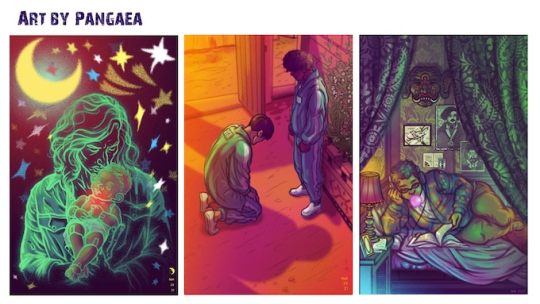
WHY KICKSTARTER?
We want to ensure that we produce the high quality product that we know we can! Whilst design, layout and formatting happens in-house, Kickstarter funds will help cover pay for our authors, cover artist and editor.
REWARDS
Add Ons!
We have a variety of extras available in the add-ons, from extra copies to special collected editions. Whilst we've tried to create reward tiers to suit everyone, the add-ons will better allow you to mix and match to your preference!
Our own @maxturnerwrites is once more offering some of his own work at discounted prices for supporters.

STRETCH GOALS!
£1000 : at £1000 we will add an Other Worlds bookmark for each physical backer
£1250 : at £1250 we will add an A5 print of cover art (without title) to each physical backer, and an e-copy of the same to each e-backer
£1500 : at £1500 we will add an Other Worlds tote bag for each physical backer
#kickstarter#call for submissions#open submission#short stories#speculative fiction#anthology#fantasy#folklore#horror#science fiction#writers of tumblr#writing
36 notes
·
View notes
Photo
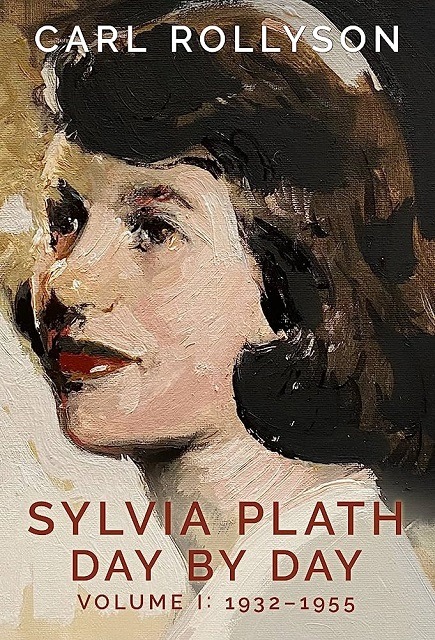
!NEW RELEASE!
Title: Sylvia Plath Day by Day, Volume 1: 1932-1955
Author: Carl Rollyson
Publication date: 15 August 2023
Pages: 400
Publisher: University Press of Mississippi (UPM)
Image source (cover & description): https://www.upress.state.ms.us
About the book:
“A fascinating investigation into the life and art of one of America’s greatest poets
Since Sylvia Plath’s death in 1963, she has become the subject of a constant stream of books, biographies, and articles. She has been hailed as a groundbreaking poet for her starkly beautiful poems in Ariel and as a brilliant forerunner of the feminist coming-of-age novel in her semiautobiographical The Bell Jar. Each new biography has offered insight and sources with which to measure Plath’s life and influence. Sylvia Plath Day by Day, a two-volume series, offers a distillation of this data without the inherent bias of a narrative.
Volume 1 commences with Plath’s birth in Boston in 1932, records her response to her elementary and high school years, her entry into Smith College, and her breakdown and suicide attempt, and ends on February 14, 1955, the day she wrote to Ruth Cohen, principal of Newnham College, Cambridge, to accept admission as an “affiliated student at Newnham College to read for the English Tripos.”
Sylvia Plath Day by Day is for readers of all kinds with a wide variety of interests in the woman and her work. The entries are suitable for dipping into and can be read in a minute or an hour. Ranging over several sources, including Plath’s diaries, journals, letters, stories, and other prose and poetry—including new material and archived material rarely seen by readers—a fresh kaleidoscopic view of the writer emerges.
Reviews
"The details in Rollyson’s Sylvia Plath Day by Day, Volume 1: 1932–1955 are a dream come true for the reader, fan, and scholar of Sylvia Plath. The seeds of so much of her creative writing are present, but Rollyson deftly does not foreshadow how events impact Plath’s life and when she transforms experiences from life to art. He lets each moment stand on its own importance."
"Sylvia Plath Day by Day, Volume 1: 1932–1955 is a must-have book for any reader interested in Plath. Detailed yet highly readable, it paints a portrait of a young woman who would become, as will be chronicled in volume 2, one of the seminal authors in the twentieth century."
"Sylvia Plath Day by Day, Volume 1: 1932–1955 fills the lacunae of existing biographies and uncovers new insights into its subject, as when Plath writes about her experiences at Smith, hearing ‘nasty little tag ends of conversation directed at you and around you, meant for you, to strangle you on the invisible noose of insinuation.’ Or her months in New York at Mademoiselle, which grow less mysterious here. Again, Carl Rollyson has provided us with an indispensable book on Sylvia Plath." “
You can order the book through their website or from other online shops.
#sylvia plath#new release#carl rollyson#sylvia plath day by day#sylviaplath#sylvia plath scholarship#university press of mississippi
28 notes
·
View notes
Text
Deutschribing Germany
Literature
Middle Ages (5th-15th centuries)
Medieval German literature can be divided into two periods: Old High German literature (8th-11th centuries) and Middle High German literature (12th-14th centuries). The only surviving works from the first period are the Hildebrandslied (Lay of Hildebrand), which is the earliest poetic text in German and tells of the tragic encounter in battle between a father and a son, and Muspilli, which deals with the fate of the soul after death and at the Last Judgment.
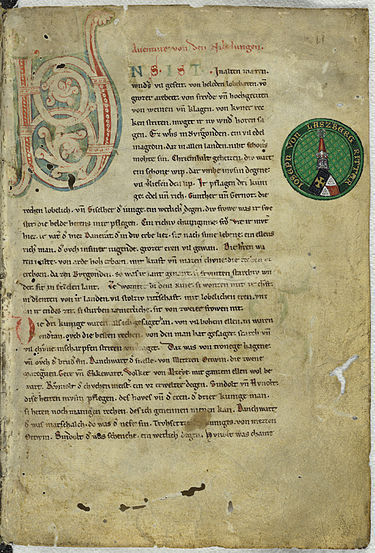
Middle High German literature saw a 60-year golden age known as mittelhochdeutsche Blütezeit, in which lyric poetry in the form of Minnesang—the German version of courtly love—blossomed thanks to poets such as Walther von der Vogelweide and Wolfram von Eschenbach. Another important genre during this time was epic poetry, of which the most famous example is the Nibelungenlied (The Song of the Nibelungs), which narrates the story of prince Siegfried and princess Kriemhild, among other characters.
Renaissance (15th-16th centuries)
Early New High German literature includes works such as Der Ring (The Ring) by Heinrich Wittenwiler, a 9,699-line satirical poem where each line is marked with red or green ink depending on the seriousness of the material, and Das Narrenschiff (Ship of Fools) by Sebastian Brant, a satirical allegory that contains the ship of fools trope.
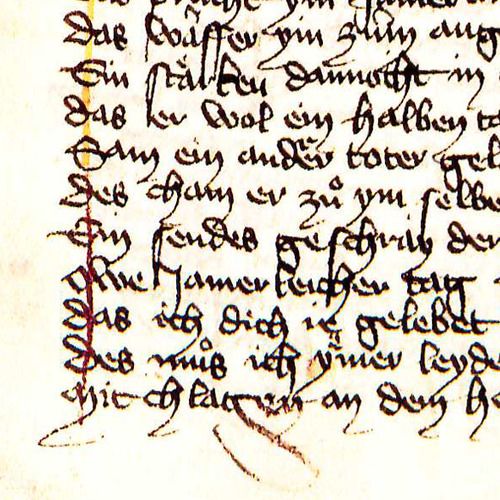
Other important authors are satirist and poet Thomas Murner, humanist Sebastian Franck, and poets Johannes von Tepl and Oswald von Wolkenstein.
Baroque (16th-17th centuries)
The Baroque period is characterized by works that reflected the experiences of the Thirty Years’ War and tragedies (Trauerspiele) on Classical themes, the latter were written by authors such as Andreas Gryphius and Daniel Caspar von Lohenstein. The most famous work is Der abenteuerliche Simplicissimus (Simplicius Simplicissimus) by Hans Jakob Christoffel von Grimmelshausen, a picaresque novel that narrates the adventures of the naïve Simplicissimus.
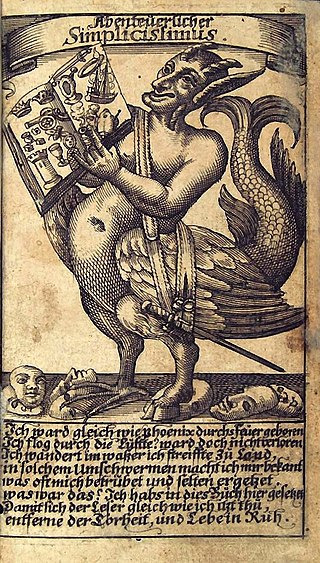
Enlightenment (17th-18th centuries)
The most important writers of the Enlightenment are Christian Felix Weiße, Christoph Martin Wieland, Gotthold Ephraim Lessing, and Johann Gottfried Herder.
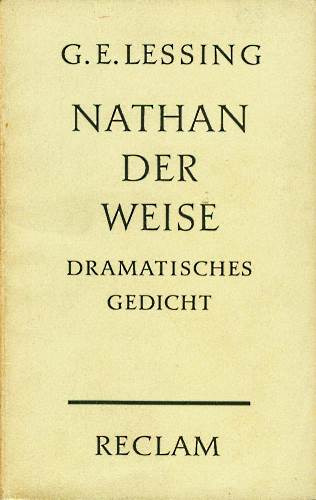
The Age of Reason saw the emergence of two literary movements: Empfindsamkeit (sentimental style) and Sturm und Drang (storm and stress). The first one intended to express true and natural feelings and featured sudden mood changes. The latter movement was characterized by individual subjectivity and extremes of emotion in response to the rationalism imposed by the Enlightenment.
Weimar Classicism (18th-19th centuries)
The main drivers behind Weimar Classicism, which synthesized ideas from Classicism, the Enlightenment, and Romanticism, were Johann Christoph Friedrich von Schiller, and Johann Wolfgang von Goethe.
During this period, Schiller published Die Bürgschaft (The Pledge), a ballad based on the legend of Damon and Pythias found in the Latin Fabulae, and Don Karlos (Don Carlos), a historical tragedy about Carlos, Prince of Asturias, while Goethe wrote Egmont, a play heavily influenced by Shakespearean tragedy, and Faust, a tragic play in which the main character sells his soul to the devil that is considered the greatest work of German literature.
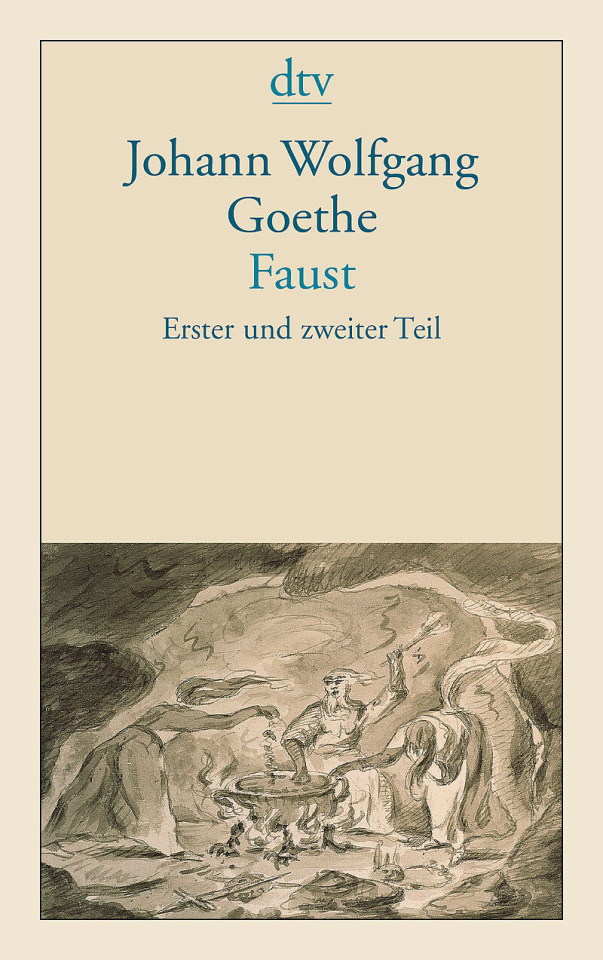
Romanticism (18th-19th centuries)
Important Romantic writers include E. T. A. Hoffmann, author of Der Sandmann (The Sandman), a short story based on the mythical character of said name that puts people to sleep by sprinkling sand on their eyes; Heinrich von Kleist, who wrote Das Kätchen von Heilbronn (The Little Catherine of Heilbronn), a drama set in Swabia in the Middle Ages; Joseph Freiherr von Eichendorff, author of Das Marmorbild (The Marble Statue), a novella about a man who struggles to choose between piety and a world of art, and Novalis, author of Hymnen an die Nacht (Hymns to the Night), a collection of six poems.
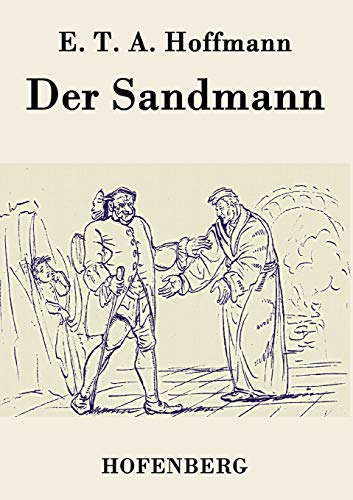
Folk tales collected by the Brothers Grimm became very popular during the Romantic period, as they represented a pure form of national literature and culture.
Biedermeier and Young Germany (19th century)
The Biedermeier period contrasts with the Romantic era and is best exemplified by poets Adelbert von Chamisso, Annette von Droste-Hülshoff, and Wilhelm Müller.
Young Germany was a youth movement whose main proponents were Karl Gutzkow, Ludolf Wienbarg, and Theodor Mundt.
Realism and Naturalism (19th century)
The most representatives realist authors are Gustav Freytag, Theodor Fontane, and Theodor Storm, while Gerhart Hauptmann was the most important naturalist writer.
Weimar literature (20th century)
During the Weimar Republic, writers such as Erich Maria Remarque, Heinrich Mann, and Thomas Mann presented a bleak look at the world and the failure of politics and society.
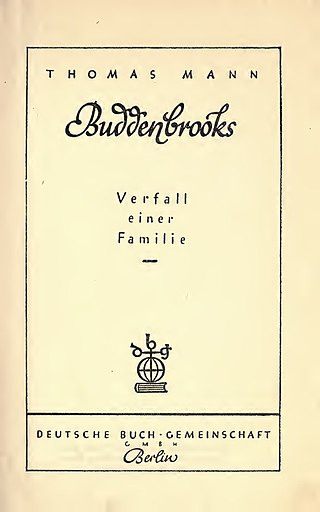
Expressionism (20th century)
As a modernist movement, Expressionism presented the world solely from a subjective perspective, distorting it for emotional effect. Famous authors include novelists Alfred Döblin and Franz Kafka, playwrights Ernst Toller and Georg Kaiser, and poets August Stramm and Else Lasker-Schüler.
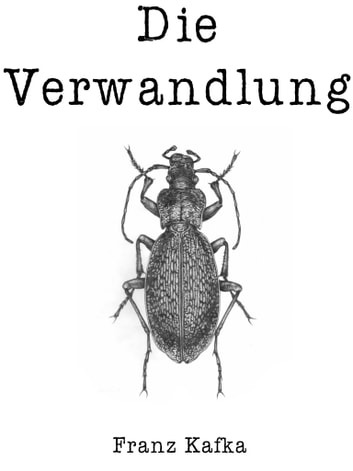
Neue Sachlichkeit (20th century)
Neue Sachlichkeit (New Objectivity) arose as a reaction against expressionism and was characterized by its political perspective on reality and portrayal of dystopias in an emotionless reporting style, showing cynicism about humanity. Authors associated with this movement include Erich Kästner, Hans Fallada, and Irmgard Keun.
Nazi Germany (1933-1945)
During the Nazi regime, some authors went into exile, while others submitted to censorship. The former, who either were of Jewish ancestry or opposed the regime for political reasons, include writers Alice Rühle-Gerstel and Anna Seghers, playwright Bertolt Brecht, and poet and novelist Hermann Hesse/Emil Sinclair.
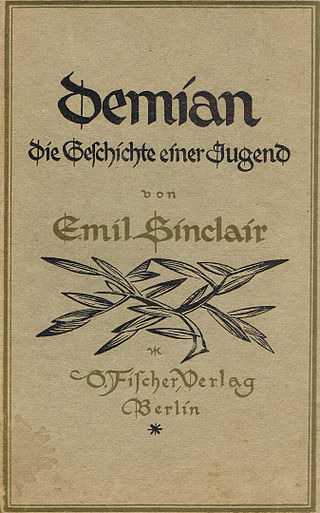
Those who stayed and engaged in inner emigration include writer Friedrich Reck-Malleczewen, poet and essayist Gottfried Benn, writer Hans Blüher, and poet and novelist Ricarda Huch.
Post-war literature (20th century)
The most famous authors in West Germany were Edgar Hilsenrath, Günter Grass, Heinrich Böll, and Group 47, a group of participants in writers’ meetings invited by Hans Werner Richter.
East German writers include Christa Wolf, Heiner Müller, Reiner Kunze, and Sarah Kirsch.
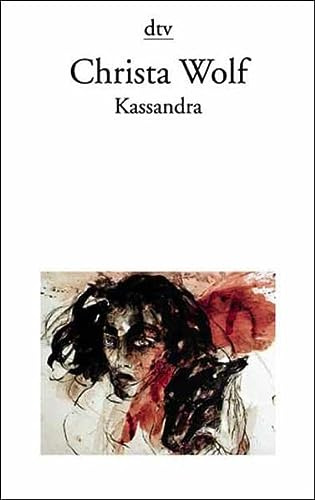
Contemporary literature (21st century)
Fantasy and science fiction authors include Andreas Eschbach, Frank Schätzing, and Wolfgang Hohlbein. Some of the most important poets are Aldona Gustas, Hans Magnus Enzensberger, and Jürgen Becker. Thriller is best represented by Ingrid Noll. Fiction novelists include Herta Müller, Siegfried Lenz, and Wilhelm Genazino.
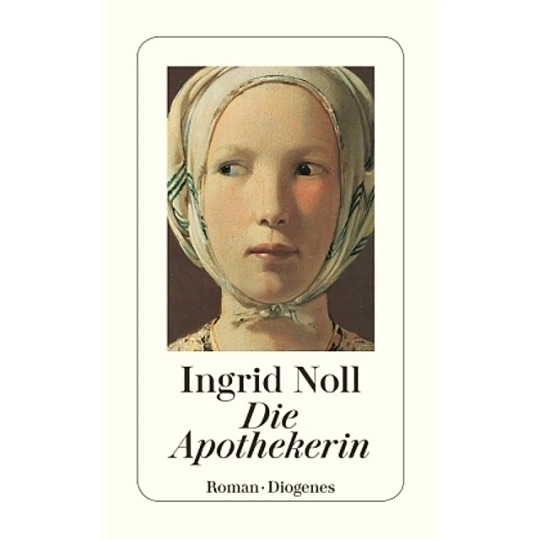
20 notes
·
View notes
Text
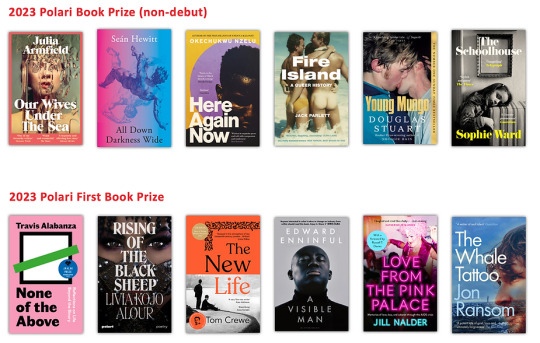
2023 POLARI PRIZE SHORTLISTS CELEBRATE QUEER STORIES THAT “ENTERTAIN, ENRICH AND INSPIRE”
Memoir, non-fiction, and critically acclaimed literary fiction from a mixture of independent presses and larger publishers dominate the dynamic shortlists for this year’s Polari Prize and Polari First Book Prize, the UK’s only dedicated awards for LGBTQ+ literature.
“The quality of long-listed titles this year was so exceptionally high, a number of much-loved titles didn’t make the shortlists” said Paul Burston, founder of the prizes. “Taken together, this year’s shortlists are a powerful testament to the quality and diversity of LGBTQ+ writing in the UK and Ireland today. From dazzling debuts to writers delivering on their earlier promise and really upping their game, these are books to entertain, enrich and inspire.”
Powerful stories of resilience and resistance are the focus of this year’s Polari First Book Prize. None
of the Above by Travis Alabanza (Canongate) is an electric memoir exploring life outside the gender boundaries imposed on us by society. Edward Enninful’s A Visible Man (Bloomsbury) also makes
the list, detailing how the man behind British Vogue has built an extraordinary life; more memoir makes an appearance with It’s A Sin’s Jill Nader and her heartbreaking and eye-opening memoir, Love from the Pink Palace (Wildfire). Fiction titles spotlighted in this category are Jon Ransom’s complex and transporting The Whale Tattoo (Muswell Press) and Tom Crewe’s historical debut novel, The New Life (Chatto & Windus). Rounding up the Polari First Book Prize is Livia Kojo Alour with Rising of the Black Sheep, the only poetry title in the shortlists.
Poet Sophia Blackwell, Polari First Book Prize judge, said:
“The shortlist is full of fearless, moving and original stories. Full of insights about how the authors came to occupy their particular places in the world, they also set out hopeful, ambitious visions for the future.”
Rachel Holmes, Polari First Book Prize judge, said: “Look no further for this year’s quintessential queer bookshelf to illuminate and inspire the approaching autumn evenings, winter weekends and festive season. There’s a beautiful, brilliant read here for all the queer family. Comfortably encompassing diverse genres and multiple points of view, fledgling emerging talent and celebrated household names, this year’s shortlist bravely re-empowers the past, interprets the present, and boldly imagines the future.”
Adam Zmith, Polari First Book Prize judge, said: “The titles on the shortlist for this year’s Polari First Book Prize wrestle with history and the present moment in engaging and empathetic ways. I loved reading these books, and feeling the queer power in them and their authors’ visions.”
Karen McLeod, Polari First Book Prize judge, said: “This shortlist is dynamic, expansive, moving and truly novel (is it too late to request a box of tissues as a rider?) I am proud we have such a diverse and emotionally intelligent set of queer voices being published today.”
Queer utopias, further memoir and exquisite prose feature in the Polari Book Prize shortlist with Jack Parlett’s Fire Island (Granta), a vivid hymn to an iconic destination, being selected and poet Seán Hewitt turns his hand to memoir in All Down Darkness Wide (Jonathan Cape). A varied spread of fiction completes the shortlist with Julia Armfield’s deep sea love story Our Wives Under the Sea, Okechukwu Nzelu’s tender study of family and grief Here Again Now (Dialogue Books), Sophie Ward’s gripping thriller The Schoolhouse (Corsair) and concluding the list is Douglas Stuart’s heartbreaking Young Mungo (Picador).
Joelle Taylor, Polari Book Prize judge, said: “This year’s Polari Prize shortlist reflects the complexities of contemporary LGBT+ lives in work that is nuanced, expansive, intimate and strange. History, futurism, crime, poetic memoir, and social commentary collide to create rich narratives that rewrite us even as we read.”
VG Lee, Polari Book Prize judge, said: “We have a strong and diverse shortlist for the Polari Prize. These are books that will appeal to many. They are that odd word, “keepers”- books to return to.”
Suzi Feay, Polari Book Prize judge, said: “This year’s shortlist highlights the sheer range and power of LGBTQ+ writing across all genres. Passionate, stylish and outspoken, these are voices to haunt and seduce. Our six choices deserve the widest readership.”
Chris Gribble, Polari Book Prize judge, said: “This year’s Polari Prize shortlist lays out the joys, challenges and complexities of contemporary and historical LGBTQ+ lives in a brilliant array of fiction and non-fiction that will leave no one in any doubt that our stories are worthy of their places on every book shelf and in every library. These writers are working at the peak of their powers and if you haven’t read their work yet, you have a real treat in store.”
2023 Polari Book Prize (non-debut)
Our Wives Under the Sea by Julia Armfield (Picador)
All Down Darkness Wide by Seán Hewitt (Jonathan Cape)
Here Again Now by Okechukwu Nzelu (Dialogue Books) Fire Island by Jack Parlett (Granta Books)
Young Mungo by Douglas Stuart (Picador)
The Schoolhouse by Sophie Ward (Corsair)
2023 Polari First Book Prize
None of the Above by Travis Alabanza (Canongate Books)
Rising of the Black Sheep by Livia Kojo Alour (Polari Press)
The New Life by Tom Crewe (Chatto & Windus)
A Visible Man by Edward Enninful (Bloomsbury)
Love from the Pink Palace by Jill Nalder (Wildfire)
The Whale Tattoo by Jon Ransom (Muswell Press)
Established in 2011, The Polari First Book Prize is awarded annually to a debut book that explores the LGBTQ+ experience, and has previously been won by writers including Kirsty Logan, Amrou Al-Kadhi, Mohsin Zaidi and last year’s winner Adam Zmith, for his keenly-researched history of poppers, Deep Sniff.
Established in 2019, The Polari Book Prize awards an overall book of the year, excluding debuts, and previous winners include Andrew McMillan (Playtime), Kate Davies (In At the Deep End), Diana Souhami (No Modernism Without Lesbians) and last year’s winner Joelle Taylor for her remarkable collection C+nto & Othered Poems which explores butch lesbian counterculture in London.
10 notes
·
View notes
Text
A Reflection Of Home
‘Have you noticed the subtle changes,’ He asked? ’For instance, Russia is now a friend when just a few years ago we were afraid of nuclear annihilation during the Cuban Missle Crisis,’ He continued. ‘I heard that the President could shoot his political enemies and nothing could be done to him,’ She said. ’He is systematically jailing […]A Reflection Of Home

View On WordPress
#AM WRITING#author blog#author&039;s blogs#blog article#blog articles#blog entries#blog entry#blog writer#blog writers#Blog-post#Bloggers#blogging#emerging authors#emerging authors poets and writers#short stories#stories#story#writers#writing
0 notes
Text


☔️ Things You May Find Hidden in my Ear: Poems from Gaza by Mosab Abu Toha
Rating: ⭐️⭐️⭐️⭐️⭐️/5
These poems emerge directly from the experience of growing up and living in constant lockdown, and often under direct attack.
“Mosab Abu Toha is an astonishingly gifted young poet from Gaza, almost a seer with his eloquent lyrical vernacular… his poems break my heart and awaken it, at the same time. I feel I have been waiting for his work all my life,” writes poet Naomi Shihab Nye.
I can’t agree more. Mosab Abu Toha is a powerful writer as he moves his audience with emotions of despair, of resilience, of this cruel reality and his hopes for a brighter future. Several of the poems moved me to tears as I read them and the author uses such extraordinary language to describe his life.
With the onslaught of death and genocide and ethnic cleansing happening to Palestine right now, I suggest we continually educate ourselves on the situation. Read a book, listen to a podcast, stay updated. Poetry is a powerful thing and Mosab Abu Toha wields it like a skilled swordsman.
#godzilla reads#things you may find hidden in my ear#mosab abu toha#book review#book blog#poetry books#bookworm#booklr#reading#bookish
7 notes
·
View notes
Text



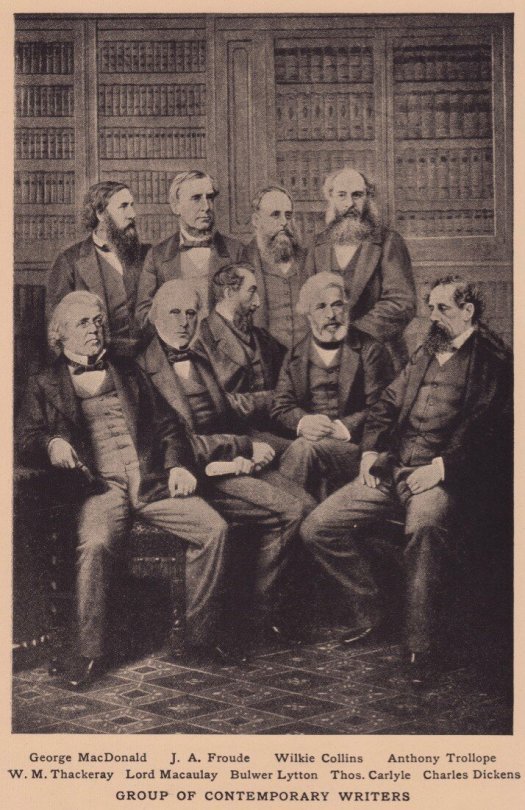
The Poet and author George MacDonald died on September 18th 1905.
George MacDonald might not be a name you are familiar with, but he was friends and was admired by some of the 19th century’s most famous writers, as seen in the group pic.
After being raised in Huntley, Aberdeenshire, by devout Calvinist parents, he attended King's College in Aberdeen. At Highbury Theological College, he received his divinity degree, and in 1850 he became a pastor of a Congregational church in Arundel. Early the following year, he married Louisa Powell, with whom he enjoyed a long and happy marriage.
McDonald was forced to resign his pulpit in 1853 because he liked to dabble in "German theology," meaning the new higher critical approach to biblical studies emerging from that country. He never took another church but spent the rest of his life lecturing, preaching, and especially writing.
Between 1851 and 1897, he wrote over 50 books in all manner of genre: novels, plays, essays, sermons, poems, and fairy tales. And then there were his two fantasies for adults, Phantastes and Lilith. During these years, Lewis Carroll became a good friend and gave him the first manuscript of Alice in Wonderland to read to his children. Other British literary luminaries—like John Ruskin, Charles Kingsley, Lord Tennyson, and Matthew Arnold—were among his associates and admirers.
When McDonald visited the United States in 1872 for a lecture tour, the likes of Ralph Waldo Emerson, Henry Wadsworth Longfellow, John Greenleaf Whittier, Oliver Wendell Holmes, and Mark Twain paid him homage. After his stay in New York City, one large Fifth Avenue church offered him the almost unheard of salary of $20,000 a year to become its pastor. MacDonald thought the idea preposterous.
His success did not exempt him from more-than-ordinary suffering. Poverty plagued him so much that his family occasionally faced literal starvation. His own lungs were diseased, and tuberculosis killed two brothers and two half-sisters. It also ravaged his children, four of whom died before him. He himself had a stroke at age 74 and lapsed into virtual silence for the last seven years of his life.
C.S. Lewis who wrote that he regarded MacDonald as his "master": "Picking up a copy of Phantastes one day at a train-station bookstall, I began to read. A few hours later," said Lewis, "I knew that I had crossed a great frontier” G K Chesterton cited The Princess and the Goblin as a book that had "made a difference to my whole existence."
Looking through George McDonalds poems I found amongst them two very famous one, Little Boy Blue, and Little Bo Peep. Now am not sure if he first created them, but just to see these was an eye opener. Most of his verse is religious, but I found one I really like in the Scots Tongue.
ANE BY ANE.
Ane by ane they gang awa’,
The Getherer gethers grit an smaa;
Ane by ane maks ane an aa.
Aye whan ane sets doun the cup
Ane ahint maun tak it up:
Yet thegither thy will sup!
Goulden-heidit, ripe an strang,
Shorn will be the hairst or lang:
Syne begins a better sang!
11 notes
·
View notes
Text
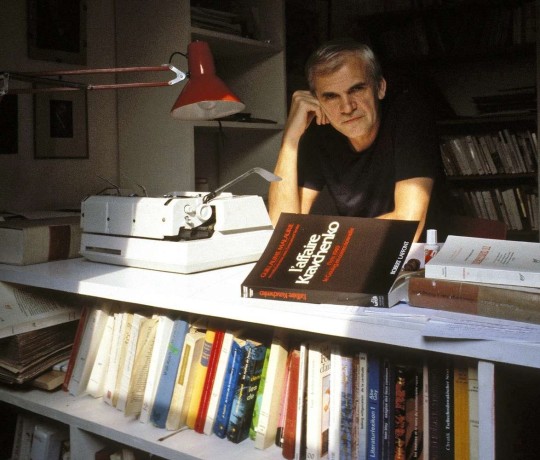
In December 1968, a plane carrying Gabriel García Márquez and Carlos Fuentes touched down in Prague. The two authors had come to show solidarity with Czechoslovakia’s writers and to discuss the year’s historic events: how the hopes of Alexander Dubcek’s Prague Spring had ebbed into the interminable autumn of the Soviet patriarch.
Their host was the Czech novelist and essayist Milan Kundera, who has died aged 94. Mindful of the need to talk freely, Kundera took his guests to a sauna, the one place in the city impossible to bug. As the steam rose and their bodies began to overheat, the visitors asked where they might sluice off the sweat. The Czech led them to a back door opening on to a hole in the frozen Vltava. He motioned towards the river and they clambered down, expecting him to follow. But Kundera remained on the bank, laughing as these hothouse flowers of Latin-American literature emerged like popsicles from the icy waters.
“The second Czech K”, as Fuentes called Kundera, in 1968 had a growing reputation as poet, dramatist, essayist and intellectual. His first novel, The Joke (turned down initially for opposing official ideology), had finally been published the year before, gaining cult success, but this moment when socialism with a human face met the “threatening fists” of power was decisive, providing not just the setting for his best known work, The Unbearable Lightness of Being (1982), but the governing theme of his oeuvre: how to be a novelist in an age when “political demagoguery has managed to ‘sentimentalise’ the will to power”.
For Kundera, who once defined himself as “a hedonist trapped in a world politicised in the extreme”, and whose novels are replete with bodily pleasures and humiliations, the lyrical intoxication of poet and revolutionary were dangerously allied. From the start, being funny was a serious business. In The Joke, a man sends a postcard with the mock salutation: “Long Live Trotsky!” The irony is lost on the censors, the result disastrous. Similarly, the stories that make up Laughable Loves (1963-68), move in a blink from farce to horror: the book was completed three days before the Russian invasion.
Like many intellectuals, Kundera was involved in the movement to create a de-Stalinised socialism. At the Fourth Congress of the Writers’ Union in 1967, Kundera gave a rallying speech arguing that Czechoslovakia’s existential precariousness (frequently overrun, its language threatened) placed it in a unique position from which to address the 20th century, but this could be relished “only [in] conditions of total freedom”.
However, after the invasion, his belief in the possibility of change unravelled: he lost “the privilege to work”, his books were removed from libraries and, by 1970 and “normalizace” – the policy of undoing Dubcˇek’s reforms – he could no longer publish.
His Kafkaesque view of power led to disagreements with the dissident playwright Václav Havel, whom Kundera attacked for encouraging the illusion of hope (“moral exhibitionism”) in a situation where history preordained defeat.
Only apart from the fray could you record your testament: this is how the novel faces power, he argued famously, with “the fight of memory against forgetting”. Havel, who remained in “the country of the weak” (as Kundera described it in The Unbearable Lightness of Being), was jailed and then fought to lead a new Czech nation in the successful Velvet Revolution, admonished him: history is not a clever divinity playing jokes on us – we are “creators of our own fate”. But Kundera had long since left the stage.
At about this time, he had started being translated abroad, a “traumatic” experience for him: he accused publishers in the west of acting like Moscow censors, when they, too, tried to “normalise” his work to fit western standards. But in 1975 he took a job in France at the University of Rennes, and four years later his Czech citizenship was revoked. He took French citizenship in 1981.
The Book of Laughter and Forgetting (1979), the first novel to come from his exile – essayistic, multi-storied – stages a battle between devilish anti-meaning and the angelic one true idea of communism. Kundera pictures these celestial figures laughing in the face of one another, a murderous dialectic against which the writer, with his love of variety and inconclusiveness, has no defence: “the terrifying laughter of angels … covers my every word with its din”.
His writing contains much of this dark laughter, strewn with gags, pranks and paradoxes, and there are good reasons for this. He exploits the vein of black comedy that central European history gives its writers as a birthright, but more ambitiously it is humour, originating in the laughter of Boccaccio, Cervantes and Rabelais, that he sees underpinning the European novel, and which he argues, in four volumes of essays, has shaped western consciousness.
The Mexican poet Octavio Paz thought “humour … the great invention of the modern spirit”, and for Kundera nothing better disseminated this idea than the generations of novels that flowed from Cervantes, producing an art of ambiguity and polyphony. These novels gave rise to our understanding of what it is to be an individual, Kundera argued, and with this, the idea of “human rights”.
All of which perhaps explains why some critics find his writing too didactic (“all talk and no story”). For all Kundera’s engaging intelligence, John Updike also felt a “strangeness that locks us out”.
Unlike Márquez, or Salman Rushdie – the company to which Kundera aspired – there is no sign of the shaman, no risk of being thought a sham. Perhaps his refusal to fall for anything – neither politics’ nor poetry’s intoxications – his pedagogic desire to disabuse, and his view of the novel as a supremely moral and rational art, leaves Kundera, peculiarly, a novelist disinclined to enchant.
For some though, such as the writer Geoff Dyer, Kundera’s importance lies precisely in this extension of the novel into meditative interrogation, by which, Dyer thinks, he “recalibrated fiction to create forms of new knowledge”.
Born in the Moravian capital Brno, Milan was the son of Milada Janosikova and Ludvik Kundera, a pianist, composer and musicologist who was head of the Janácˇek Music Academy. The son also studied composition, and music was a lifelong love, often summoned in his novels and essays. At Charles University in Prague, Kundera studied literature and aesthetics and, like most of his generation, was caught up in the great postwar euphoria, attracted to the possibilities held out by communism, after the blight of Nazism, of a Czech society reborn.
The Russians liberated the country in 1945 and nobody was surprised when, the following year, the Communist party won 38% of the vote and formed a coalition government. Kundera joined the party (“I too once danced in a ring. It was the spring of 1948,” he confesses in The Book of Laughter and Forgetting), and some of his poetry displays the kind of lyrical enthusiasm he would later decry.
He switched his degree to film, but in 1950 was expelled for “anti-party activities”, an incident that gave birth to The Joke. Allowed to return to his studies, he rejoined the political fold in 1956, remaining in the party for the next 14 years. His freewheeling, speculative manner as a teacher of world literature at the Prague film school from 1958 until 1969 influenced many Czech new wave directors, Miloš Forman among them.
Living in exile in Paris, Kundera revised into French all his works written in Czech, then set a novel in France, Immortality (1988). The same year, The Unbearable Lightness of Being was adapted for film, directed by Philip Kaufman and starring Daniel Day-Lewis and Juliette Binoche, and Kundera found celebrity as an author, a status he was not entirely comfortable with. He began writing in French (despite which, he won the 2007 Czech state prize for literature). Slowness (1996), Identity (1998) and Ignorance (2000) were well-received, though none had the impact of the earlier Czech works.
In 2008, after an investigation, an accusation was made against Kundera in the Czech magazine Respekt. It was claimed that in 1950 he gave the name of Miroslav Dvoracek to the police. Dvoracek, a pilot, had escaped from Czechoslovakia but returned as a western intelligence agent; he was subsequently arrested, narrowly escaped the death penalty, and served 14 years in a labour camp.
Kundera denied that he was the informant and a group of writers including Fuentes, Márquez, Rushdie, Philip Roth, Orhan Pamuk, Nadine Gordimer and JM Coetzee came swiftly to his defence in a letter declaring him the victim of “orchestrated slander”.
Havel said he thought the way events unfolded too “stupid” for Kundera to have been involved, and that his old friend and adversary, who had scrupulously kept away from the media, rarely giving interviews, had “become entangled in a thoroughly Kunderaesque world, one that he has so masterly managed to keep at a distance from all his real life”.
The following year, Kundera published Encounter, a series of essays, some going back 20 years. In one, discussing Bohumil Hrabal, the author of Closely Observed Trains, Kundera reiterates his view of the relation of politics and art, and his belief in the pre-eminence of the novel in the struggle for human liberation: “One single book by Hrabal does more for people, for their freedom of mind, than all the rest of us with our actions, our gestures, our noisy protests!”
His final novel, The Festival of Insignificance, was published in 2015. Four years later, his Czech citizenship was finally restored.
He is survived by his wife, Vera Hrabankova.
🔔 Milan Kundera, writer, born 1 April 1929; died 11 July 2023
Daily inspiration. Discover more photos at http://justforbooks.tumblr.com
12 notes
·
View notes
Text
Submission Window: March 1st - 31st, 2024
Payment: 8 cent per word for fiction, $20 for poetry, 8 cent per word for non-fiction, $125 for cover art
Theme: Speculative fiction
Note: This call is for authors of color, members of the LGBTQIA+ community, and other underrepresented groups
It's our goal to publish diverse voices from around the world, and to do that, we are actively seeking stories, poems, and non-fiction pieces by authors from backgrounds that have been historically underrepresented in the science fiction and fantasy canon. Our submission cycle is therefore split into two categories, where every other month is explicitly reserved for submissions by authors of color, members of the LGBTQIA+ community, and other underrepresented groups. The interposing six months remain open to everyone.
Guidelines for Fiction
We are seeking stories in the English language up to 6,000 words by writers from around the world. We favor submisions that have not been published before (including on your own website), though we have historically accepted a limited number of reprints not currently appearing anywhere online. For our two issues focused on the climate crisis, we're particularly interested in publishing stories from people displaced by or threatened by the climate emergency (see our themes below). For our other four issues, we're open to a wide variety of stories across the SFF and weird spectra.
We pay 8¢ per word for fiction, and we try to respond to all submissions within ten weeks. We have also accepted a limited number of previously published stories, so please indicate on the form if your submission is a reprint. All submissions must use the Shunn manuscript format (we prefer Courier New) and be either .rtf, .doc, or .docx.
We like stories that are subtle in their telling and stick with us long after we've finished. We're more likely to buy stories that balance a sense of wonder with a bold plot and emotional depth. Meditative stories that all take place in a single room, for example, are less likely to capture our imagination. Basically, we want it all: character, concept, dialogue, tone, plot, a strong opening and ending, and everything else!
Simultaneous submissions are fine, but please no multiple submissions. Also, please wait at least a week before you submit again after hearing from us about a story.
As writers ourselves, we do our best to handle each story with the care and attention it deserves. Every submission is an act of bravery, and we know that putting yourself out there as a writer can be tough. Just know that any story we receive, unless they contain something illegal, will be kept in confidence.
When in doubt, don't self reject! Submit submit submit!
Guidelines for Poetry
We are seeking poetry of any length, and we welcome submissions by poets writing in the English language from anywhere in the world. We favor submisions that have not been published before (including on your own website), though we do accept a limited number of reprints, and for our two issues focused on the climate crisis, we're particularly interested in publishing poems from people displaced by or threatened by the climate emergency (see our themes below). For our other four issues, we're open to a wide variety of poems across the SFF and weird spectra.
We pay $20 for poems, and we try to respond to all submissions within ten weeks. We have also accepted a limited number of previously published poems, so please indicate on the form if your submission is a reprint. All submissions must use the Shunn manuscript format (we prefer Courier New) and be either .rtf, .doc, or .docx.
We like poems that use complex fixed verse forms (think sestina, awdl gywydd, masnavi, etc), but we're not against blank or free verse. Most important to us is vivid imagery, clever lyricism, and a strong emotional core.
You may submit up to five poems at a time, but please separate them into individual submissions.
Guidelines for Non-Fiction
We like
articles on politics and pop culture, articles steeped in science or otherwise verging on the academic, and pieces with funny or interesting takes we might not have expected. We pay 8¢ per word for non-fiction, but please nothing over 1,000 words.
Guidelines for Art
For each issue, we pay $125 for cover art. If you think your work would look great on the cover of a science fiction and fantasy magazine, send us your best work and be sure to include a link to your portfolio in the cover letter!
Themes
WET ISSUE
Each September, we publish our WET Issue! Here we focus on stories of water—monsoons and the rising tides, hurricanes and the disappearing coast—we'll center stories by authors directly affected by the climate crisis, though we'll consider anything that fits the theme, even vaguely!
To submit a story for the theme, make sure to mention in your cover letter how your submission relates to the theme and, if you'd like, how you've been personally affected by the crisis at hand. Submissions by climate refugees are very welcome.
DRY ISSUE
Each March, we publish our DRY Issue! Here we're looking for content that focuses on the dry aspects of climate change—desertification and falling reservoirs, rising temperatures and endless droughts—we'll center stories by authors directly affected by the climate crisis, though we'll consider anything that fits the theme, even vaguely!
To submit a story for the theme, make sure to mention in your cover letter how your submission relates to the theme and, if you'd like, how you've been personally affected by the crisis at hand. Submissions by climate refugees are very welcome.
Go to Submission Form
Via: Haven Speculative.
2 notes
·
View notes